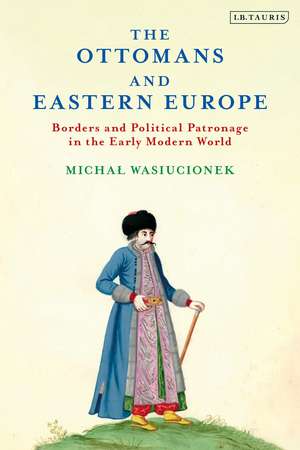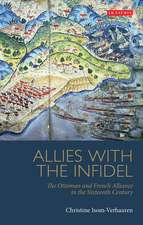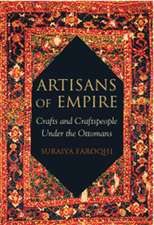The Ottomans and Eastern Europe: Borders and Political Patronage in the Early Modern World: The Ottoman Empire and the World
Autor Michal Wasiucioneken Limba Engleză Hardback – 26 iun 2019
| Toate formatele și edițiile | Preț | Express |
|---|---|---|
| Paperback (1) | 219.01 lei 6-8 săpt. | |
| Bloomsbury Publishing – 23 dec 2020 | 219.01 lei 6-8 săpt. | |
| Hardback (1) | 658.11 lei 6-8 săpt. | |
| Bloomsbury Publishing – 26 iun 2019 | 658.11 lei 6-8 săpt. |
Preț: 658.11 lei
Preț vechi: 944.07 lei
-30% Nou
126.04€ • 129.86$ • 105.58£
Carte tipărită la comandă
Livrare economică 22 februarie-08 martie
Specificații
ISBN-10: 1788318471
Pagini: 296
Ilustrații: 7 b/w
Dimensiuni: 156 x 234 x 19 mm
Greutate: 0.59 kg
Editura: Bloomsbury Publishing
Colecția I.B.Tauris
Seria The Ottoman Empire and the World
Locul publicării:London, United Kingdom
Caracteristici
Notă biografică
Michal Wasiucionek is a post-doctoral fellow at the New Europe College in Bucharest. He received his PhD from the European University Institute, Florence and was previously a lecturer at the Centre for Comparative History and Political Studies in Perm, Russia. He presents regularly at conferences around the world and has published in peer-reviewed journals and edited collections.
Cuprins
PrefaceIntroductionChapter 1. The Field of Play: A Human Landscape of the Seventeenth-Century Eastern EuropePart I: MECHANICS OF CROSS-BORDER PATRONAGE Chapter 2. Building Bridges, Building Trust: The Toolkits of Faction-BuildingChapter 3. Flows and Exchanges: Resources and Their CirculationPart II: MECHANICS OF CROSS-BORDER PATRONAGEChapter 4. Friends and Enemies: Factional Infighting and Macro-Politics Chapter 5. Annexing MoldaviaChapter 6. Choosing OttomansConclusions
Descriere
In the seventeenth century, previously peaceful relations between the Ottoman Empire and the Polish-Lithuanian Commonwealth deteriorated into a series of military confrontations over the principalities of Moldavia and Wallachia. Although scholars have generally interpreted this rivalry in terms of conflicting geopolitical interests, this state-centred approach ignores one of the most important developments of the period: the devolution of power away from rulers and formal institutions towards political factions. Drawing on Ottoman, Polish and Romanian sources, The Ottomans and Eastern Europe explores the complex interplay between regional politics and the rise of factionalism, focusing on cross-border patronage between Ottoman, Polish-Lithuanian and Moldavian elites. By approaching the history of the region from a factional, rather than state-centred perspective, this book investigates an alternative geography of power, defined by personal interactions that straddled religious, political and social boundaries between the elites. Wasiucionek reveals the way in which these interactions not only shaped the Ottoman-Polish rivalry over Moldavia, but also influenced political culture throughout the region.







